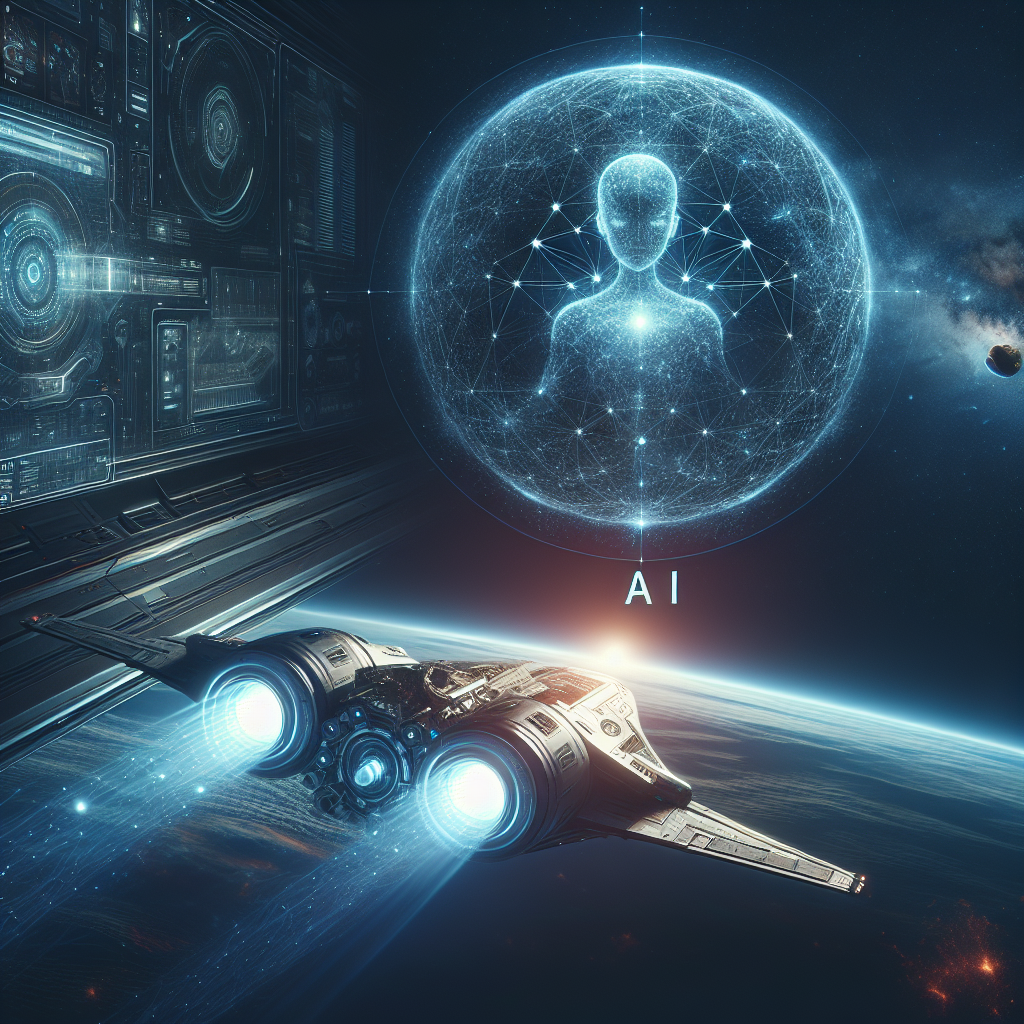AI Deployment in Space Exploration: Advancing Research
Artificial Intelligence (AI) has become an integral part of space exploration in recent years, revolutionizing the way we conduct research and gather data in the vast expanse of outer space. From assisting in the analysis of massive amounts of data to guiding autonomous spacecraft, AI has significantly advanced our understanding of the universe and has opened up new possibilities for exploration.
The deployment of AI in space exploration has enabled scientists and researchers to overcome many challenges that were previously insurmountable. By leveraging machine learning algorithms and advanced computing capabilities, AI has allowed us to process and analyze complex data sets in real-time, providing valuable insights into the mysteries of space.
One of the primary ways in which AI is being used in space exploration is through the analysis of satellite imagery. Satellites orbiting the Earth capture vast amounts of data on a daily basis, from weather patterns to changes in the Earth’s surface. AI algorithms can quickly analyze this data and identify patterns or anomalies that may indicate important changes or events.
For example, AI has been used to analyze satellite imagery to track deforestation, monitor crop health, and even detect illegal fishing activities. By automating the analysis of this data, AI can help researchers and policymakers make more informed decisions about environmental conservation and resource management.
AI is also playing a crucial role in guiding autonomous spacecraft in space missions. From navigating through asteroid fields to landing on distant planets, AI algorithms can make split-second decisions based on sensor data and pre-programmed instructions. This level of autonomy is essential for missions that require long-distance communication with Earth, as it reduces the time delay in sending and receiving commands.
In addition to its applications in data analysis and spacecraft control, AI is also being used to develop new technologies for space exploration. For example, AI algorithms are being used to design new propulsion systems, optimize spacecraft trajectories, and even predict space weather patterns. These advancements are pushing the boundaries of what is possible in space exploration and paving the way for future missions to Mars, the Moon, and beyond.
One of the most exciting developments in AI deployment in space exploration is the use of autonomous rovers and drones on other planets. These robotic explorers are equipped with AI algorithms that allow them to navigate challenging terrain, collect samples, and conduct experiments without human intervention. This level of autonomy is essential for future manned missions to other planets, as it reduces the risk to human astronauts and allows for more efficient data collection.
Despite the many benefits of AI deployment in space exploration, there are still challenges that need to be overcome. One major challenge is the limited computing power available on spacecraft, which can restrict the capabilities of AI algorithms. Researchers are working on developing more efficient algorithms that can run on limited hardware, as well as exploring the use of quantum computing for space missions.
Another challenge is the potential for AI to make mistakes or misinterpret data, leading to incorrect decisions or actions. To address this issue, researchers are developing AI systems that are transparent and explainable, allowing humans to understand how the AI arrived at a decision and intervene if necessary. This level of transparency is essential for maintaining the safety and integrity of space missions.
Despite these challenges, the deployment of AI in space exploration is advancing research and opening up new possibilities for exploration. From analyzing satellite imagery to guiding autonomous spacecraft, AI is revolutionizing the way we explore the universe and pushing the boundaries of what is possible in space exploration.
FAQs:
Q: How is AI being used in space exploration?
A: AI is being used in space exploration in a variety of ways, including analyzing satellite imagery, guiding autonomous spacecraft, developing new technologies, and operating autonomous rovers and drones on other planets.
Q: What are the benefits of using AI in space exploration?
A: The benefits of using AI in space exploration include the ability to process and analyze vast amounts of data in real-time, guide autonomous spacecraft in challenging environments, develop new technologies for space missions, and operate robotic explorers on other planets.
Q: What are the challenges of using AI in space exploration?
A: Some of the challenges of using AI in space exploration include limited computing power on spacecraft, the potential for AI to make mistakes or misinterpret data, and the need for transparent and explainable AI systems to ensure the safety and integrity of space missions.
Q: How is AI advancing research in space exploration?
A: AI is advancing research in space exploration by providing valuable insights into the mysteries of space, enabling more efficient data collection and analysis, and pushing the boundaries of what is possible in space exploration.
Q: What are some future applications of AI in space exploration?
A: Some future applications of AI in space exploration include designing new propulsion systems, optimizing spacecraft trajectories, predicting space weather patterns, and developing autonomous systems for manned missions to other planets.

